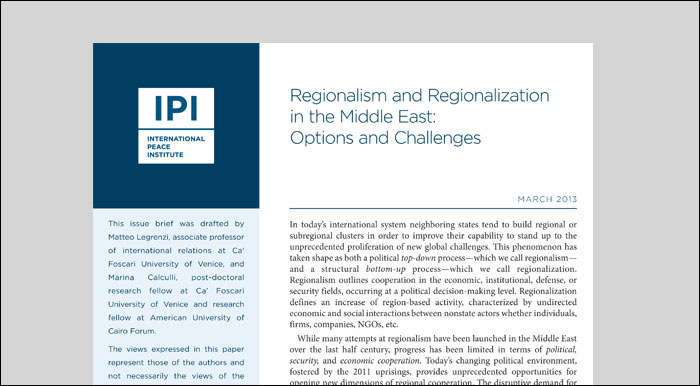 Today’s changing political environment, fostered by the 2011 uprisings, provides unprecedented opportunities for opening new dimensions of regional cooperation in the Middle East. The disruptive demand for democracy, social justice, unemployment reduction, and job creation is likely to exert greater pressure on the new political actors to explore new ways to foster economic growth. This could provide unprecedented incentives for improving regional cooperation.
Today’s changing political environment, fostered by the 2011 uprisings, provides unprecedented opportunities for opening new dimensions of regional cooperation in the Middle East. The disruptive demand for democracy, social justice, unemployment reduction, and job creation is likely to exert greater pressure on the new political actors to explore new ways to foster economic growth. This could provide unprecedented incentives for improving regional cooperation.
This issue brief describes the current initiatives for regionalism in the Middle East from the Arab League to the Gulf Cooperation Council and the Euro-Mediterranean Partnership, among others, and it analyzes the various political, economic, and security-based challenges they face.
It concludes that a lack of political coordination among the Arab states, the predominance of rentier economies in the region, and the lack of economic complementarity have all severely hindered regional integration in the Middle East. But it cautiously points to some tentative positive signals coming out of the post-Arab Spring context, with some hope that the need for job creation and higher productivity in the Middle East could lead to greater regional cooperation in the future.
The paper was drafted by Matteo Legrenzi, associate professor of international relations at Ca’ Foscari University of Venice, and Marina Calculli, post-doctoral research fellow at Ca’ Foscari University of Venice and research fellow at American University of Cairo Forum.







